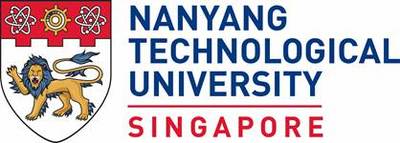Research efforts of the EMBB group members are focused on biofilm engineering, a highly interdisciplinary research topic at the interface between engineering and microbiology, with the goals of understanding biofilm-mediated environmental processes and applying the knowledge and insights to harness the power of beneficial biofilms and to combat detrimental biofilms in the context of environmental biotechnology.
Ongoing research projects include
1. Engineering controllable biofilms for biocatalysis: This project aims to control the dynamics of biofilm development to achieve optimal biocatalytic performance. Synthetic biology, directed evolution, and systems biology tools are used.
2. Plastic-bacteria interaction in Southeast Asian (SEA) seas: This project explores biofilm-plastic interaction under SEA marine environmental conditions with the goal of understanding microbial processes influencing the fate of plastic debris in SEA seas and bioprospecting enzymes to address plastic pollution in the region.
3. Engineering solutions inspired by plastic-eating worms: This project aims to develop engineering solutions for plastic upcycling by learning from plastic-eating worms on how to deal with plastic using their gut microbial communities.
4. Microbial biotechnology-enabled solutions to sustainability: This project explores applications of microbial biotechnology to address sustainability issues. One example is microbially induced biomineralization for geotechnical and construction materials applications. The other example is engineered biofilms for resource recovery (e.g., metals from spent batteries and P from low-P water streams) and contaminant removal (e.g., As from groundwater).
5. Biofilm-chemical interaction: This project explores interaction between bacterial biofilms and biocidal chemicals with the goal of understanding molecular mechanisms and developing novel biocidal chemicals for biofilm control.
We welcome PhD applicants and visiting researchers interested in any of the above projects to join us. We also welcome those who propose new projects within our main research themes to join our group. Interested students may contact Dr. Bin Cao (bincao@ntu.edu.sg) to find out more about our PhD and/or visiting researcher programs.
1. Engineering controllable biofilms for biocatalysis: This project aims to control the dynamics of biofilm development to achieve optimal biocatalytic performance. Synthetic biology, directed evolution, and systems biology tools are used.
2. Plastic-bacteria interaction in Southeast Asian (SEA) seas: This project explores biofilm-plastic interaction under SEA marine environmental conditions with the goal of understanding microbial processes influencing the fate of plastic debris in SEA seas and bioprospecting enzymes to address plastic pollution in the region.
3. Engineering solutions inspired by plastic-eating worms: This project aims to develop engineering solutions for plastic upcycling by learning from plastic-eating worms on how to deal with plastic using their gut microbial communities.
4. Microbial biotechnology-enabled solutions to sustainability: This project explores applications of microbial biotechnology to address sustainability issues. One example is microbially induced biomineralization for geotechnical and construction materials applications. The other example is engineered biofilms for resource recovery (e.g., metals from spent batteries and P from low-P water streams) and contaminant removal (e.g., As from groundwater).
5. Biofilm-chemical interaction: This project explores interaction between bacterial biofilms and biocidal chemicals with the goal of understanding molecular mechanisms and developing novel biocidal chemicals for biofilm control.
We welcome PhD applicants and visiting researchers interested in any of the above projects to join us. We also welcome those who propose new projects within our main research themes to join our group. Interested students may contact Dr. Bin Cao (bincao@ntu.edu.sg) to find out more about our PhD and/or visiting researcher programs.
Research Sponsored by




